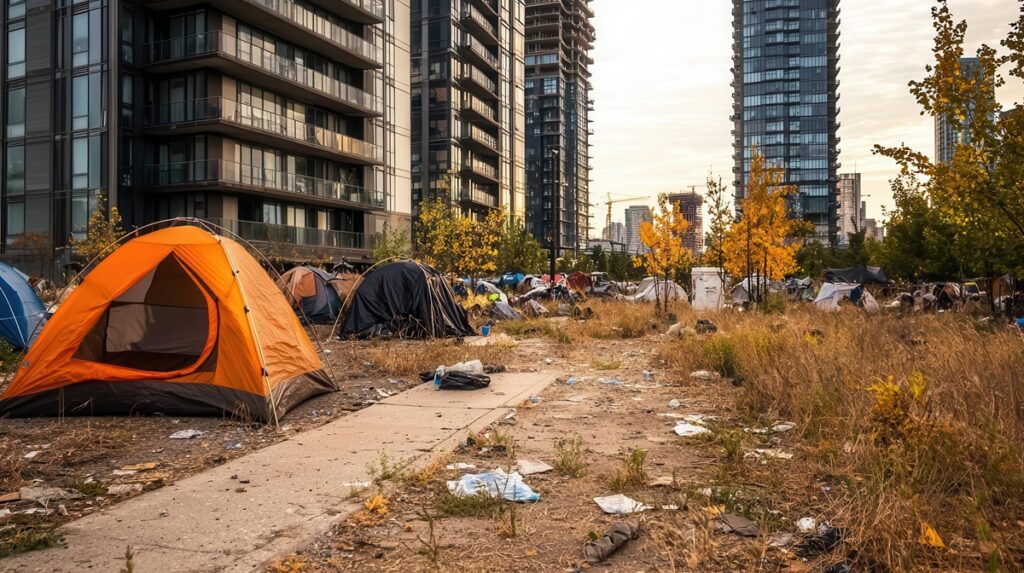The U.S. Government Accountability Office (GAO) has issued “Homelessness: Actions to Help Better Address Older Adults’ Housing and Health Needs” a report examining the needs of older adults experiencing homelessness and the barriers faced in addressing those needs.
According to U.S. Department of Housing & Urban Development (HUD), approximately 138,000 older adults (aged 55 and older) experienced homelessness on a single night in 2023. As found in the study, these adults often have needs that can be particularly challenging to address, according to 45 homelessness service providers and other stakeholders that GAO spoke with when compiling the report.
Some stakeholders also said older adults belonging to certain racial, ethnic, or other groups can encounter additional barriers when accessing homelessness assistance programs. For example, they said members of some racial or ethnic groups may experience unfair treatment, an unwelcoming environment, or cultural insensitivity. Some providers reported taking steps to promote more equitable provision of services in their programs.
Breaking Down Racial Disparities
Data from HUD’s 2023 Annual Homeless Assessment Report: Part 1: Point-in-Time Estimate report estimates of the U.S. population as of July 2022 indicates the following:
- HUD estimated that about 37% of the people experiencing homelessness identified as Black, African, or African American. The Census Bureau estimated that about 14% of the U.S. population identified as Black or African American.
- HUD estimated that approximately 4% of people experiencing homelessness identified as American Indian, Alaska Native, or Indigenous. The Census Bureau estimated that about 1% of the U.S. population identified as American Indian and Alaska Native.
- HUD estimated that nearly 2% of those experiencing homelessness identified as Asian or Asian American. The Census Bureau estimated that about 6% of the U.S. population identified as Asian.
- HUD estimated that approximately 2% of people experiencing homelessness identified as Native Hawaiian or Pacific Islander. The Census Bureau estimated that less than 1% of the U.S. population identified as Native Hawaiian and Other Pacific Islander.
- HUD estimated that about 6% of people experiencing homelessness identified as multiple races. The Census Bureau estimated that about 3% of the U.S. population identified as two or more races.
- HUD estimated that about 50% of people experiencing homelessness identified as White. The Census Bureau estimated that about 76% of the U.S. population identified as White.
- HUD estimated that nearly 28% of people experiencing homelessness (of any race) identified as Hispanic/Latin. The Census Bureau estimated that about 19% of the U.S. population identified as Hispanic of any race.
“As the report notes, an estimated 138,000 older adults were experiencing homelessness in 2023, representing 21% of the overall homeless population,” said Rep. Maxine Waters. “Incorporating community site visits and interviews, GAO found that the barriers to fair and affordable housing for older adults, including the limitations of fixed incomes, are often compounded by urgent accessibility and health care needs. For instance, older adults with disabilities, including mobility limitations and chronic conditions, who require housing that is equipped with accessibility features typically find it difficult to secure housing that meets these needs. What’s more, the GAO also found that some older adults face barriers when trying to access homeless services as a result of unequal treatment or discrimination and cultural insensitivity as it relates to race, ethnicity, and gender. GAO’s report also highlights our nation’s worsening housing supply and affordability crisis as a key factor in rising homelessness among older adults.”
Seeking Solutions
Rep. Waters has issued several measures and proposals to alleviate the nation’s homeless crisis, including the reintroduction of a legislative housing package aimed at tackling the affordable housing crisis, ending homelessness, and eliminating the racial wealth and homeownership gaps in the United States:
- The Housing Crisis Response Act of 2023 would provide more than $150 billion in fair and affordable housing investments, representing the single largest investment in affordable housing in our nation’s history. These funds would create nearly 1.4 million affordable and accessible homes, help nearly 300,000 households afford their rent, and address the racial wealth gap through the first-ever national investment in homeownership for first-time, first-generation homebuyers.
- The Ending Homelessness Act of 2023 would end homelessness and significantly reduce poverty in America by transforming the Housing Choice Voucher program into a federal entitlement, so that every household who qualifies for assistance would receive it. The bill would also ban housing discrimination based on source of income and veteran status.
- The Downpayment Toward Equity Act of 2023 would help address the U.S. racial wealth and homeownership gaps by providing $100 billion in direct assistance to help first-time, first-generation homebuyers purchase their first home. This would include assistance for downpayments, closing costs, and to help buydown mortgage interest rates.
In its report, the GAO recommends that the Secretary of the Department of Health and Human Services for the Housing and Services Resources Center should ensure that the Administration for Community Living (ACL) Administrator, as the lead agency for the Housing and Services Resource Center, works with partner agencies to clearly define short- and long-term outcomes for the Center, consistent with leading collaboration practices. In addition, the Secretary of HHS should ensure that the ACL Administrator, as the lead agency for the Housing and Services Resource Center, works with partner agencies to collect and use performance information and other relevant evidence to assess progress toward the Center’s desired outcomes, consistent with leading collaboration practices.
For the study, GAO polled nine communities based on diversity of geography and population density. GAO conducted nongeneralizable interviews with 45 service providers and other stakeholders and 34 older adults with experiences of homelessness. In addition, GAO reviewed agency documents and interviewed federal agency officials.
Click here to access the GAO’s full report, “Homelessness: Actions to Help Better Address Older Adults’ Housing and Health Needs.”





